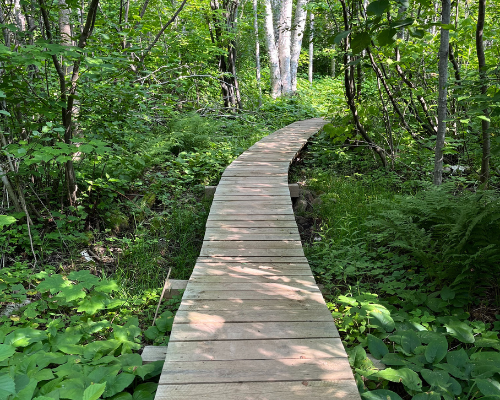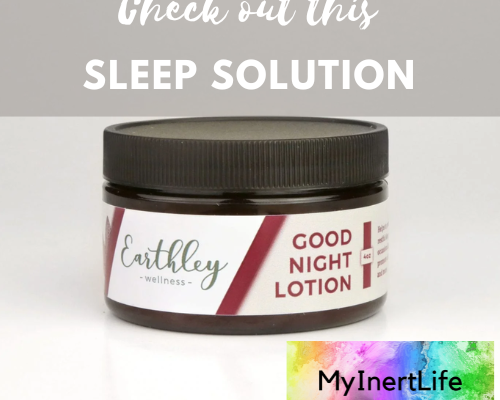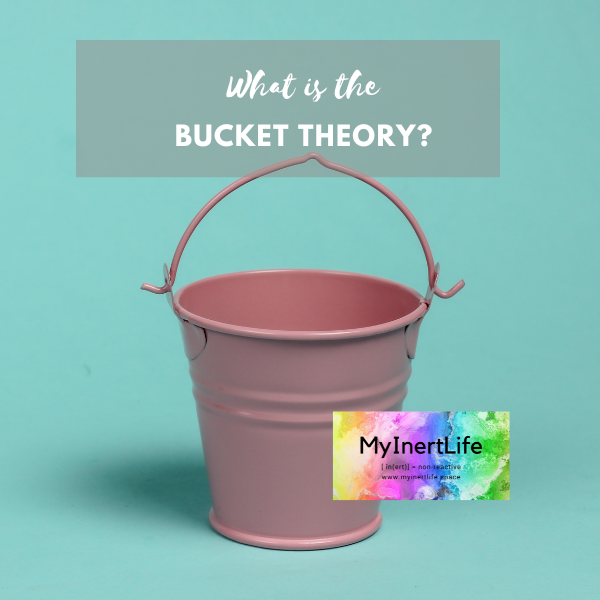This post is the second installment in a series of posts covering my journey to hike the Superior Hiking Trail with MCAS.
As an Amazon Associate, I earn from qualifying purchases.
Table of Contents
Why hike the SHT?
I have MCAS, and I’m always looking for ways to push the limits of my disability. After reading Cheryl Strayed’s book Wild this summer, I decided to do a solo hike in the Minnesota wilderness.
To manage it I had to cut back on some of the supplements and therapeutic practices that I use to manage my MCAS, and in the process I found I could manage with less than I thought.
What is MCAS?
Mast Cell Activation Syndrome (MCAS) is a chronic condition that affects all organ systems. MCAS is serious and disabling and people with MCAS often experience significant and debilitating symptoms daily, including anaphylaxis, which can be fatal.
MCAS is often found in combination with other chronic conditions such as Ehlers-Danlos Syndrome (EDS) and Postural Orthostatic Tachycardia Syndrome (POTS).
Frequently healthcare providers do not know about MCAS, and the tests for MCAS are problematic because they are not uniformly reliable. MCAS can be difficult to manage. Treatments include blocking mast cell mediators with anti-histamines and mast cell stabilizers, as well as avoiding triggers.
Check out this post on how to manage MCAS.
The Superior Hiking Trail
The SHT is a hiking trail in northern Minnesota comprised of public and private lands that is about 300 miles long.
On day two of my Superior Hiking Trail journey, it poured buckets of rain all night and I suspected that the trail would be even muddier than before. Indeed, I learned later in the day that part of Highway 61 had washed out near Schroeder, Minnesota, sections of back roads were impassable, and the trail was a muddy mess.
So I opted to do a 3-mile round-trip section of the trail about 12 miles north of Grand Marais called the Lakewalk. It’s a stretch of trail on a pebble beach with breathtaking views. I’m super glad I made this choice because my stamina is still impaired from having Covid recently and this flat stretch of trail had zero elevation gain. Even so, I still needed to lie down for a rest part-way.
Some things I noted from my hike today:
– Walking on a beach is harder than you might think. The small pebbles are the most difficult to walk on because you can’t get much purchase. The pebbles and rocks get swept into gradations by size from the wave action of the lake, with swaths of stones grouped by similar size. The easiest of these natural “lanes” is made of rocks about the size of a fist. So as much as I could I stuck to the easiest parts of the beach to travel. But in many sections, there were only tiny pebbles to walk on, so I have sore stabilizing muscles in my inner thighs from navigating the shifting beach surface.
– I purchased almost everything for my trip used on eBay, GearTrade, marketplace, or during Memorial Day sales. I wore the Altra hiking shoes (aptly named Altra Superior) that I found on sale at Gear West for $23 and luckily they are so comfortable! I walked into the water to cool off and found that they were waterproof! Exceptional bargain purchase!
– I was the only hiker on the beach and it felt like a private haven. It was so special to have it all to myself! At the end of my hike as I was leaving the trail four hikers were just starting. I could tell that they were SHT thru-hikers by their appropriate grunge and sunburns.
– I again hiked out and back along the same path. Some people use shuttle services to get to trail sections, parking a car at one end, so they don’t have to retrace their route. At this point I’m too cheap to do that so I’ll be hiking double the distance.
– I mentioned in my first post that my mom is my role model for this hike because she’s done the entire trail. But my dad is my inspiration for doing endurance events. He has run dozens of marathons, skied the entire World Loppet series of Nordic races, and in his prime, he ran many ultramarathons including the Western States 100-mile run through Death Valley in CA, as well as numerous 24-hour runs. I have no interest in going those distances, but you could say I take my obsessive personality traits from him. Thanks, mom and dad!
– Many folks doing the SHT eat prepared meal bars and dehydrated meals because they are light and packed with calories. Because of my Mast Cell condition (MCAS), I can’t tolerate many common ingredients so I dehydrated my meals for my trip from the limited selection of foods I tolerate. For dinner, I ate a delicious rehydrated meal with zucchini noodles, chicken, potato flakes, and butter powder. I also tried a purchased Aloha coconut bar with mostly acceptable ingredients and was happy to notice no I’ll effects. Yum!
I’m profoundly grateful to have the chance to do this hike and have these experiences!!
I’ll be heading back to Woodbury today but I’ll try to get in one more section of trail near Duluth as I pass through.





Stay tuned for the next installment in this journey!
The bucket theory
The bucket theory offers a helpful analogy for understanding symptom reactions with MCAS.
Think of your body as an empty bucket that you want to keep from overflowing. Different foods and activities fill your histamine bucket at different speeds but they combine to form the total level of histamine in your body (how full your bucket is). A fuller bucket means you have more histamine symptoms. When you manage triggers, reduce exposure to known triggers, and take medications and supplements to reduce histamine, you can manage the level of your bucket.
Know your typical symptom progression
Knowing your symptom progression in a symptom flare is the key to developing your rescue plan. In this post, I discuss how to determine your symptom progression. Once you know what typically happens in your symptom progression you can design a rescue plan to address those symptoms.
Get my free ebook, symptom log, and meal plan!
Want a tool to easily keep track of your symptoms? Sign up for my newsletter and you will receive my free 50-page ebook of lower-histamine, grain-free, sugar-free recipes, my free symptom log, and a free two-week meal plan!
Sign up for the SSP!
The SSP is a listening therapy based on Polyvagal Theory created by Stephen Porges to unlock your ability to think, feel, and connect better through nervous system regulation. You use the SSP via an app on your phone and listen with over-the-ear headphones to specially filtered music that heals the nervous system, specifically the vagus nerve. You subscribe to the app with a provider like me and listen to the specially curated music for 30 minutes each day for a 5-hour cycle. Studies show the SSP has a profound effect on mental health and chronic conditions
You can sign up for the SSP here!
Order my book!
Rocks and Roots chronicles my journey solo backpacking the Superior Hiking Trail and overcoming nervous system dysregulation, gut dysbiosis, and Mast Cell Activation Syndrome symptoms to hike 328 miles successfully.
Check out this powerful frequency device
Healy is an individualized microcurrent device I use to reduce inflammation. Check out this post for more about Healy.
Sign up for a session!
I provide one-on-one in-person and remote chronic illness and caregiver coaching and Sacred Self-Healing Sessions based on the Sacred Self-Healing Method, a proven novel co-creative healing modality detailed in my Books.
Click here for more information.
What do you think?
I’d love to have your reply below!
Disclaimer
The preceding material does not constitute medical advice. This information is for information purposes only and is not intended to be a substitute for professional medical advice, diagnosis, cure or treatment. Always seek advice from your medical doctor.




